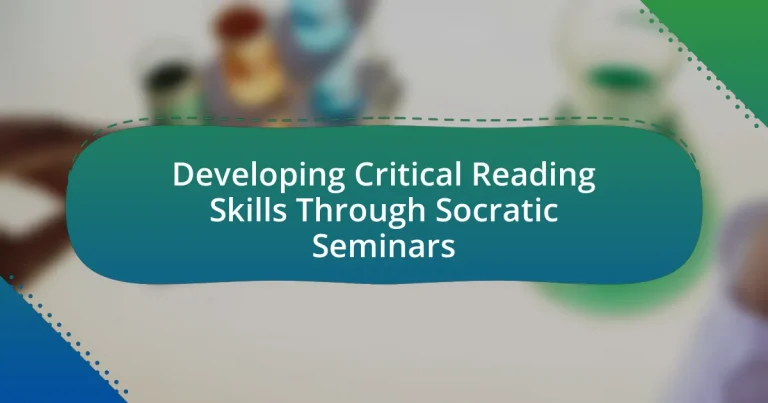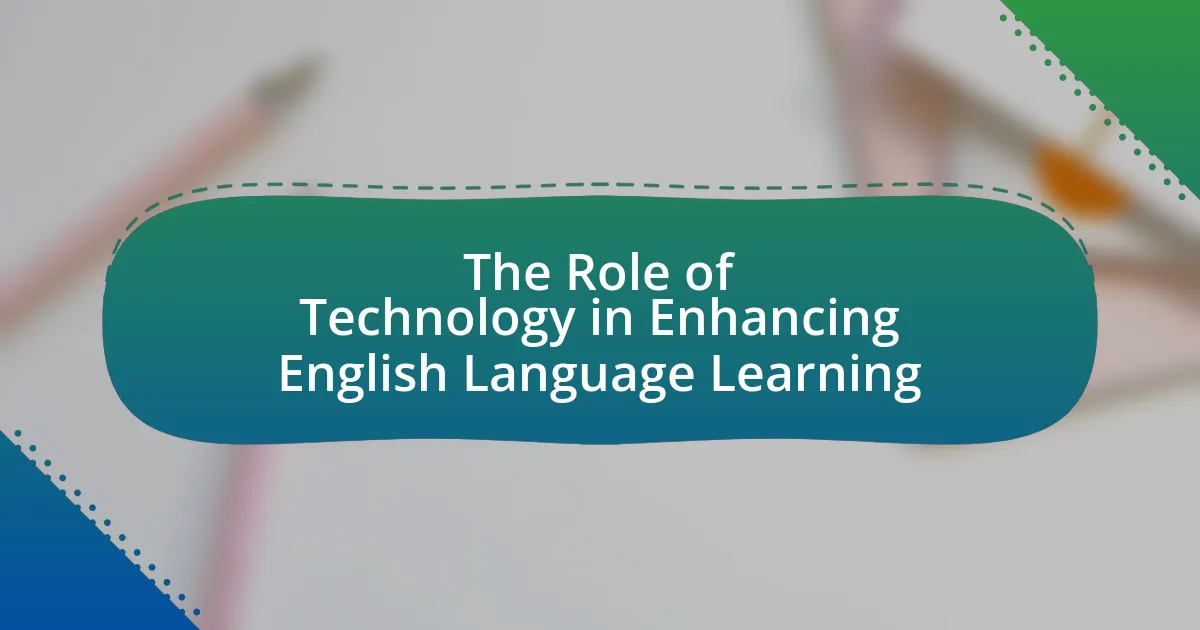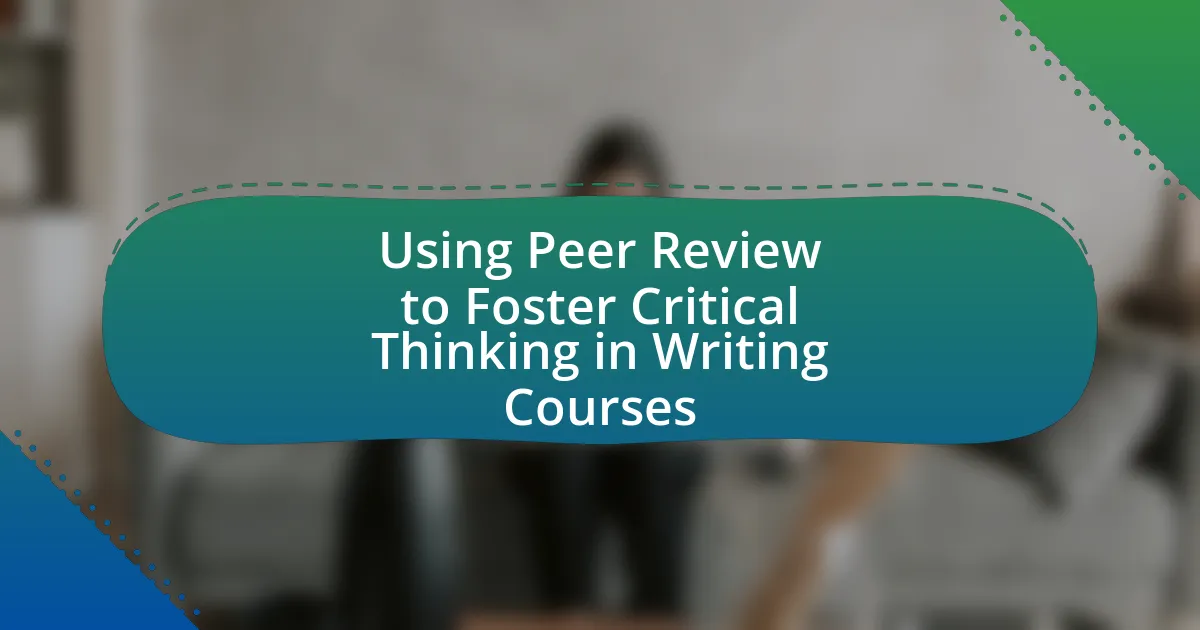The article focuses on developing critical reading skills through Socratic Seminars, emphasizing the importance of these skills in education for analyzing, evaluating, and interpreting texts. It outlines the key components of critical reading, such as comprehension, analysis, evaluation, and synthesis, and discusses how identifying an author’s purpose and evaluating arguments contribute to effective reading. The article also details the structure and benefits of Socratic Seminars, including fostering critical thinking, enhancing student engagement, and providing strategies for educators to implement and assess these discussions effectively. Additionally, it addresses challenges educators may face and offers solutions for managing diverse reading levels and maximizing the effectiveness of Socratic Seminars.
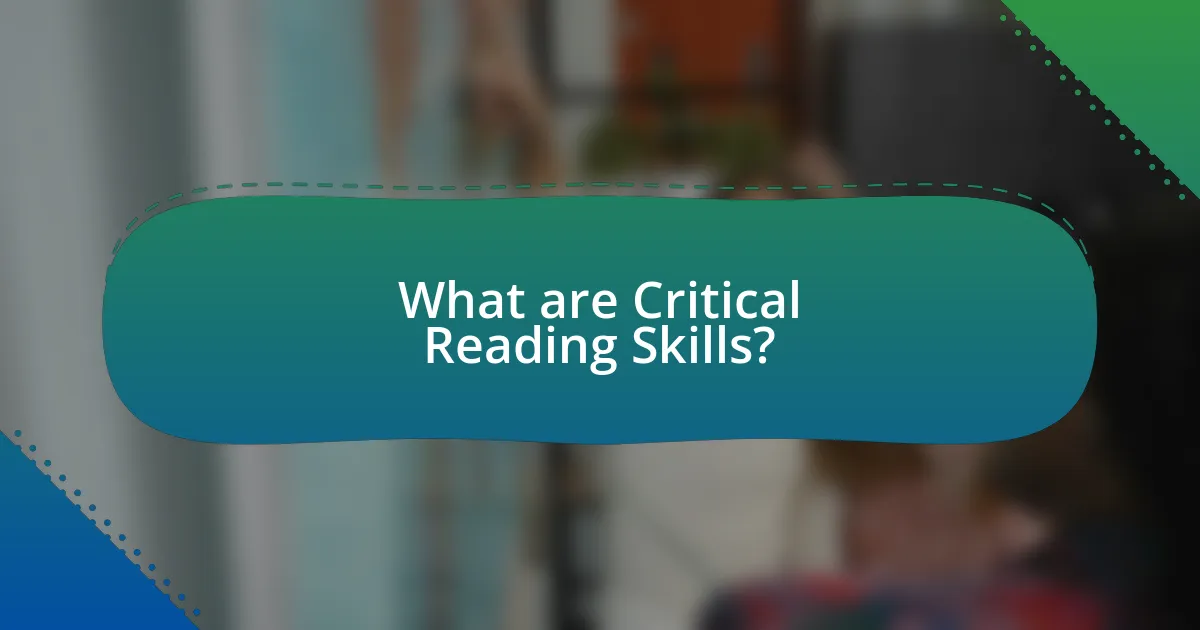
What are Critical Reading Skills?
Critical reading skills are the abilities that enable an individual to analyze, evaluate, and interpret texts effectively. These skills involve questioning the author’s intent, identifying biases, and assessing the validity of arguments presented in the material. Research indicates that critical reading skills are essential for academic success, as they enhance comprehension and foster deeper engagement with content. For instance, a study published in the Journal of Educational Psychology found that students who practiced critical reading demonstrated improved analytical thinking and better retention of information.
Why are Critical Reading Skills important in education?
Critical reading skills are important in education because they enable students to analyze, evaluate, and synthesize information effectively. These skills foster deeper comprehension of texts, allowing learners to discern underlying arguments, identify biases, and assess the credibility of sources. Research indicates that students who engage in critical reading demonstrate improved academic performance and enhanced critical thinking abilities, which are essential for success in higher education and professional environments. For instance, a study published in the Journal of Educational Psychology found that students who practiced critical reading techniques scored significantly higher on assessments of comprehension and analytical skills compared to their peers who did not.
How do Critical Reading Skills enhance comprehension?
Critical reading skills enhance comprehension by enabling readers to analyze, evaluate, and synthesize information effectively. These skills allow individuals to engage deeply with texts, discern underlying arguments, and identify biases or assumptions. Research indicates that critical reading fosters higher-order thinking, which is essential for understanding complex materials. For instance, a study published in the Journal of Educational Psychology found that students who practiced critical reading techniques demonstrated improved comprehension scores compared to those who did not. This evidence supports the assertion that critical reading skills are vital for enhancing overall comprehension.
What role do Critical Reading Skills play in analytical thinking?
Critical reading skills are essential for analytical thinking as they enable individuals to evaluate, interpret, and synthesize information effectively. By engaging with texts critically, readers can discern underlying arguments, identify biases, and assess the validity of claims, which are crucial components of analytical reasoning. Research indicates that critical reading fosters deeper comprehension and encourages questioning, both of which enhance the ability to analyze complex ideas and arguments. For instance, studies show that students who practice critical reading demonstrate improved analytical skills in problem-solving and decision-making contexts.
What are the key components of Critical Reading Skills?
The key components of Critical Reading Skills include comprehension, analysis, evaluation, and synthesis. Comprehension involves understanding the text’s main ideas and details, while analysis focuses on breaking down the text to examine its structure and meaning. Evaluation requires assessing the credibility and relevance of the information presented, and synthesis involves integrating new insights with existing knowledge. These components are essential for engaging deeply with texts and fostering critical thinking, as supported by educational research that emphasizes the importance of these skills in academic success and informed citizenship.
How does identifying the author’s purpose contribute to Critical Reading?
Identifying the author’s purpose enhances critical reading by enabling readers to understand the motivations behind a text, which informs their interpretation and analysis. When readers recognize whether an author aims to inform, persuade, entertain, or express an opinion, they can critically evaluate the effectiveness of the arguments presented and the techniques used. For instance, research indicates that understanding an author’s intent can lead to deeper engagement with the material, as readers are better equipped to question assumptions and identify biases. This analytical approach fosters a more comprehensive understanding of the text, ultimately improving critical reading skills.
What techniques can be used to evaluate arguments in texts?
Techniques to evaluate arguments in texts include analyzing the structure of the argument, assessing the credibility of sources, identifying logical fallacies, and examining the evidence presented. Analyzing the structure involves breaking down the argument into its premises and conclusion to determine if the reasoning is sound. Assessing the credibility of sources requires evaluating the reliability and expertise of the authors or organizations behind the claims. Identifying logical fallacies, such as ad hominem or straw man arguments, helps to uncover weaknesses in the reasoning. Examining the evidence involves checking for relevance, sufficiency, and quality of the data or examples provided to support the argument. These techniques are essential for developing critical reading skills, particularly in the context of Socratic seminars, where dialogue and questioning enhance understanding and evaluation of complex texts.
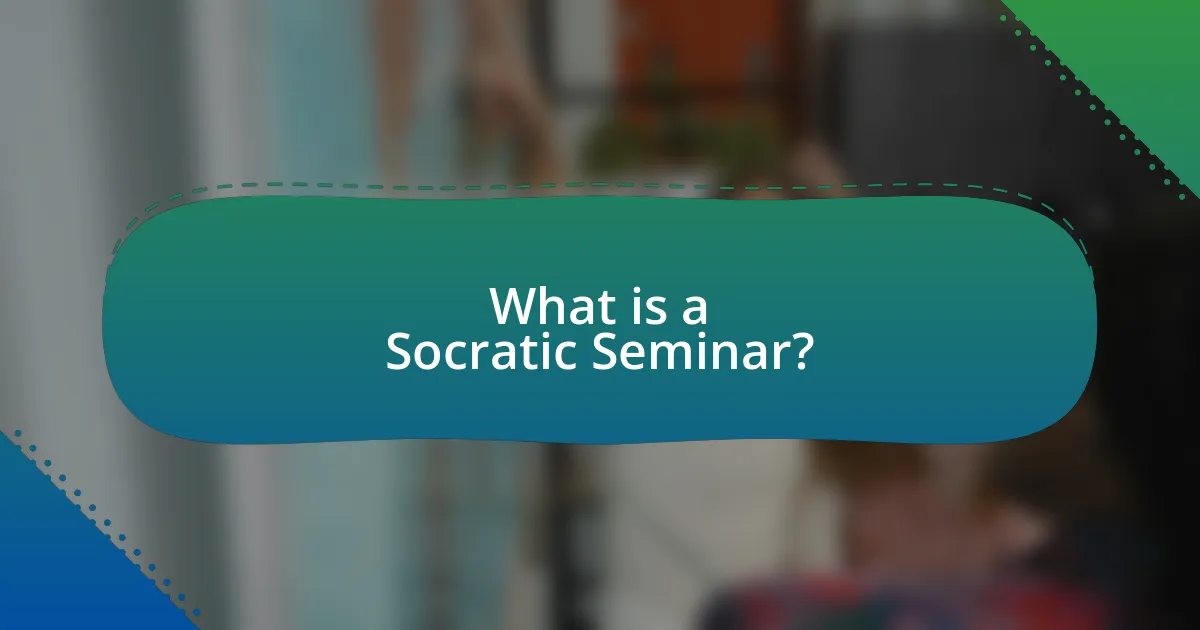
What is a Socratic Seminar?
A Socratic Seminar is a structured discussion format that encourages critical thinking and dialogue among participants. In this format, individuals engage in open-ended questions about a text or topic, fostering deeper understanding through collaborative inquiry. The method is rooted in the Socratic method, which emphasizes asking and answering questions to stimulate critical thinking and illuminate ideas. Research indicates that Socratic Seminars enhance critical reading skills by promoting active engagement with texts, allowing participants to analyze, interpret, and evaluate content collectively.
How does a Socratic Seminar facilitate discussion?
A Socratic Seminar facilitates discussion by promoting critical thinking and dialogue among participants. This method encourages individuals to engage deeply with texts, articulate their thoughts, and respond to the ideas of others, fostering a collaborative learning environment. Research indicates that Socratic Seminars enhance comprehension and analytical skills, as students must evaluate different perspectives and construct reasoned arguments based on textual evidence. For example, a study by J. A. McTighe and D. W. D. McTighe in “Understanding by Design” highlights how structured questioning in Socratic Seminars leads to richer discussions and deeper understanding of complex materials.
What are the essential rules of engagement in a Socratic Seminar?
The essential rules of engagement in a Socratic Seminar include active listening, respectful dialogue, and evidence-based contributions. Active listening requires participants to fully concentrate on what others are saying, fostering a collaborative environment. Respectful dialogue emphasizes the importance of valuing differing opinions and responding thoughtfully rather than dismissively. Evidence-based contributions involve supporting claims with textual references or logical reasoning, which enhances the depth of discussion and critical analysis. These rules collectively promote a productive and respectful exchange of ideas, essential for developing critical reading skills.
How does the format of a Socratic Seminar differ from traditional discussions?
The format of a Socratic Seminar differs from traditional discussions primarily in its emphasis on dialogue over debate. In a Socratic Seminar, participants engage in open-ended questioning and collaborative exploration of ideas, fostering critical thinking and deeper understanding, whereas traditional discussions often focus on presenting individual viewpoints and reaching a conclusion. This method encourages participants to listen actively and build on each other’s thoughts, promoting a collective inquiry rather than a competitive exchange of opinions.
What are the benefits of using Socratic Seminars for developing Critical Reading Skills?
Socratic Seminars enhance critical reading skills by promoting deep engagement with texts through dialogue and questioning. This method encourages participants to analyze, interpret, and evaluate the material collaboratively, fostering a deeper understanding of the content. Research indicates that students involved in Socratic Seminars demonstrate improved comprehension and critical thinking abilities, as they learn to articulate their thoughts and consider multiple perspectives. A study by J. A. McTighe and D. W. D. McTighe in “Understanding by Design” highlights that such discussions lead to higher-order thinking, essential for effective critical reading.
How do Socratic Seminars promote deeper understanding of texts?
Socratic Seminars promote deeper understanding of texts by encouraging critical thinking and dialogue among participants. This method allows individuals to explore different interpretations and perspectives, fostering a collaborative learning environment. Research indicates that engaging in discussions about a text enhances comprehension, as participants must articulate their thoughts and respond to others, which deepens their analytical skills. For instance, a study by the National Council of Teachers of English found that students who participated in Socratic Seminars demonstrated improved critical reading abilities and a greater ability to connect themes across texts.
What impact do Socratic Seminars have on student engagement and participation?
Socratic Seminars significantly enhance student engagement and participation by fostering an interactive learning environment. In these seminars, students are encouraged to think critically and articulate their thoughts, which leads to increased involvement in discussions. Research indicates that when students participate in Socratic Seminars, they demonstrate higher levels of motivation and investment in their learning process. For instance, a study by J. A. McTighe and D. W. D. McTighe in “Understanding by Design” highlights that dialogue-driven learning methods, such as Socratic Seminars, promote deeper understanding and retention of material, thereby boosting student engagement.
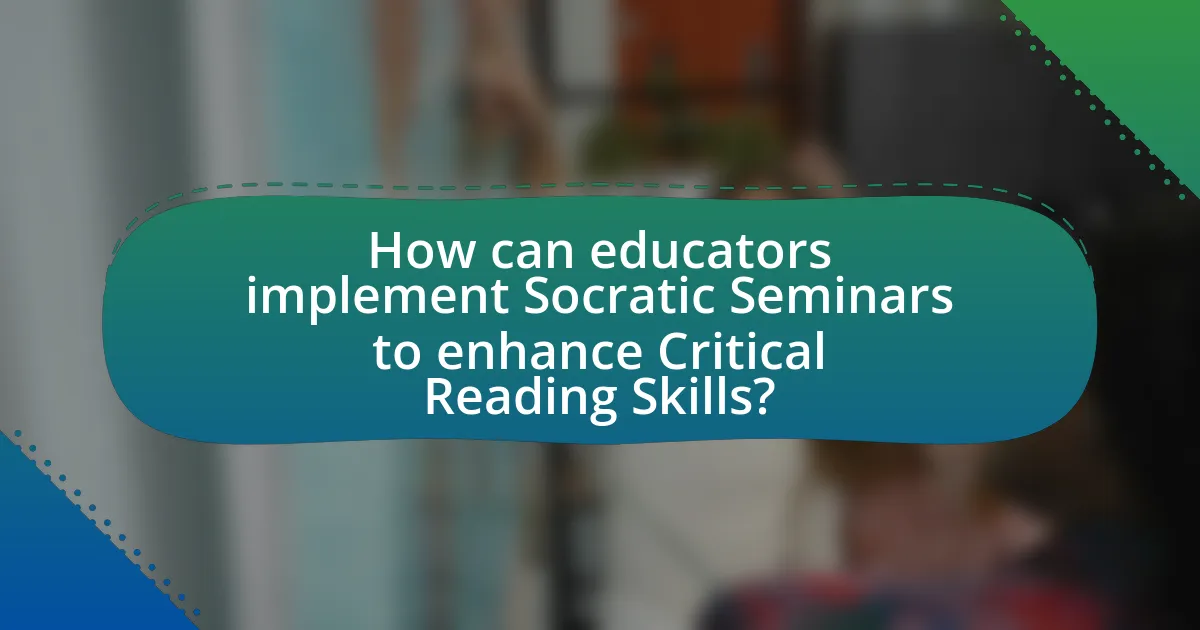
How can educators implement Socratic Seminars to enhance Critical Reading Skills?
Educators can implement Socratic Seminars to enhance critical reading skills by facilitating structured discussions that encourage students to analyze texts deeply. In these seminars, educators pose open-ended questions related to the reading material, prompting students to engage with the text and each other critically. This method fosters an environment where students must support their viewpoints with evidence from the text, thereby improving their analytical skills. Research indicates that Socratic Seminars promote higher-order thinking and comprehension, as students learn to articulate their thoughts and challenge assumptions through dialogue.
What strategies can teachers use to prepare students for Socratic Seminars?
Teachers can prepare students for Socratic Seminars by implementing strategies such as teaching critical questioning techniques, fostering a collaborative classroom environment, and providing structured guidelines for discussion. Critical questioning techniques help students formulate open-ended questions that stimulate dialogue, enhancing their analytical skills. A collaborative environment encourages students to engage with diverse perspectives, promoting deeper understanding. Structured guidelines, such as norms for respectful listening and speaking, ensure that discussions remain focused and productive. Research indicates that these strategies significantly improve students’ critical thinking and reading comprehension skills, as evidenced by studies showing increased engagement and understanding in seminar settings.
How can educators select appropriate texts for Socratic Seminars?
Educators can select appropriate texts for Socratic Seminars by ensuring the texts are thought-provoking, relevant to the curriculum, and accessible to students’ reading levels. Thought-provoking texts often contain complex themes or moral dilemmas that stimulate discussion, such as classic literature or contemporary articles on social issues. Relevance to the curriculum ensures that the texts align with learning objectives, enhancing students’ engagement and comprehension. Accessibility is crucial; texts should be challenging yet understandable, allowing all students to participate meaningfully in discussions. Research indicates that texts that provoke inquiry and debate foster deeper critical thinking skills, essential for effective Socratic Seminars.
What methods can be employed to assess student performance in Socratic Seminars?
Methods to assess student performance in Socratic Seminars include peer evaluation, self-assessment, teacher observation, and rubric-based assessments. Peer evaluation allows students to provide feedback on each other’s contributions, fostering a collaborative learning environment. Self-assessment encourages students to reflect on their participation and understanding of the material. Teacher observation involves monitoring student engagement and the quality of their contributions during discussions. Rubric-based assessments provide clear criteria for evaluating student performance, ensuring consistency and transparency in grading. These methods collectively enhance the assessment process by promoting critical thinking and accountability among students.
What challenges might educators face when conducting Socratic Seminars?
Educators may face several challenges when conducting Socratic Seminars, including student engagement, varying levels of critical thinking skills, and classroom dynamics. Student engagement can be difficult to achieve, as some students may feel uncomfortable speaking in a group setting or may not be familiar with the format, which can hinder meaningful discussion. Additionally, students often possess differing levels of critical thinking abilities, making it challenging for educators to facilitate discussions that are accessible yet intellectually stimulating for all participants. Classroom dynamics, such as dominant personalities overshadowing quieter students, can further complicate the seminar process, leading to imbalanced participation and limiting the diversity of perspectives shared. These challenges can impact the overall effectiveness of Socratic Seminars in developing critical reading skills.
How can teachers address student reluctance to participate?
Teachers can address student reluctance to participate by creating a supportive and inclusive classroom environment. This can be achieved through strategies such as establishing clear expectations, fostering a sense of community, and using varied instructional methods that cater to different learning styles. Research indicates that when students feel safe and valued, their willingness to engage increases significantly. For instance, a study by Wentzel (1998) found that positive teacher-student relationships enhance student motivation and participation. Additionally, incorporating student interests into discussions can make participation more appealing, as highlighted in the work of Deci and Ryan (2000), which emphasizes the importance of intrinsic motivation in learning contexts.
What solutions exist for managing diverse reading levels in a seminar setting?
To manage diverse reading levels in a seminar setting, differentiated instruction is essential. This approach involves tailoring reading materials to match the varying abilities of participants, ensuring that all individuals can engage meaningfully with the content. For instance, providing texts at multiple reading levels or using summaries and graphic organizers can help bridge gaps in comprehension. Research indicates that differentiated instruction enhances student engagement and understanding, as evidenced by a study published in the “Journal of Educational Psychology,” which found that students exposed to differentiated materials showed a 20% increase in comprehension scores compared to those who received uniform texts. Additionally, incorporating peer support strategies, such as pairing stronger readers with those who struggle, fosters collaborative learning and improves overall seminar participation.
What are some best practices for maximizing the effectiveness of Socratic Seminars?
To maximize the effectiveness of Socratic Seminars, educators should establish clear guidelines for discussion, encourage open-ended questions, and foster a respectful environment. Clear guidelines help participants understand expectations, while open-ended questions stimulate deeper thinking and engagement with the material. A respectful environment promotes active listening and thoughtful responses, which are crucial for meaningful dialogue. Research indicates that structured discussions enhance critical thinking skills, as evidenced by studies showing improved analytical abilities in students who participate in Socratic Seminars compared to traditional teaching methods.
How can feedback be effectively integrated into the Socratic Seminar process?
Feedback can be effectively integrated into the Socratic Seminar process by establishing a structured framework for peer evaluation and reflection. This involves creating specific criteria for feedback that focus on the quality of questions posed, the depth of responses, and the engagement level of participants. For instance, after each seminar, participants can engage in a feedback session where they discuss what worked well and what could be improved, fostering a culture of constructive criticism. Research indicates that structured feedback enhances learning outcomes; a study by Hattie and Timperley (2007) in “Review of Educational Research” shows that feedback significantly impacts student achievement when it is specific, timely, and actionable. Thus, integrating feedback through structured peer evaluations and reflective discussions can enhance the Socratic Seminar experience and improve critical reading skills.
What role does reflection play in improving Critical Reading Skills through Socratic Seminars?
Reflection plays a crucial role in improving critical reading skills through Socratic Seminars by enabling participants to analyze their understanding and thought processes. This introspection allows individuals to identify gaps in comprehension and encourages deeper engagement with the text. Research indicates that reflective practices, such as journaling or group discussions post-seminar, enhance cognitive processing and retention of information, leading to improved analytical abilities. For instance, a study by Paul and Elder (2006) highlights that reflective thinking fosters critical analysis, which is essential for effective reading comprehension. Thus, reflection not only reinforces learning but also cultivates a habit of questioning and evaluating texts critically.
